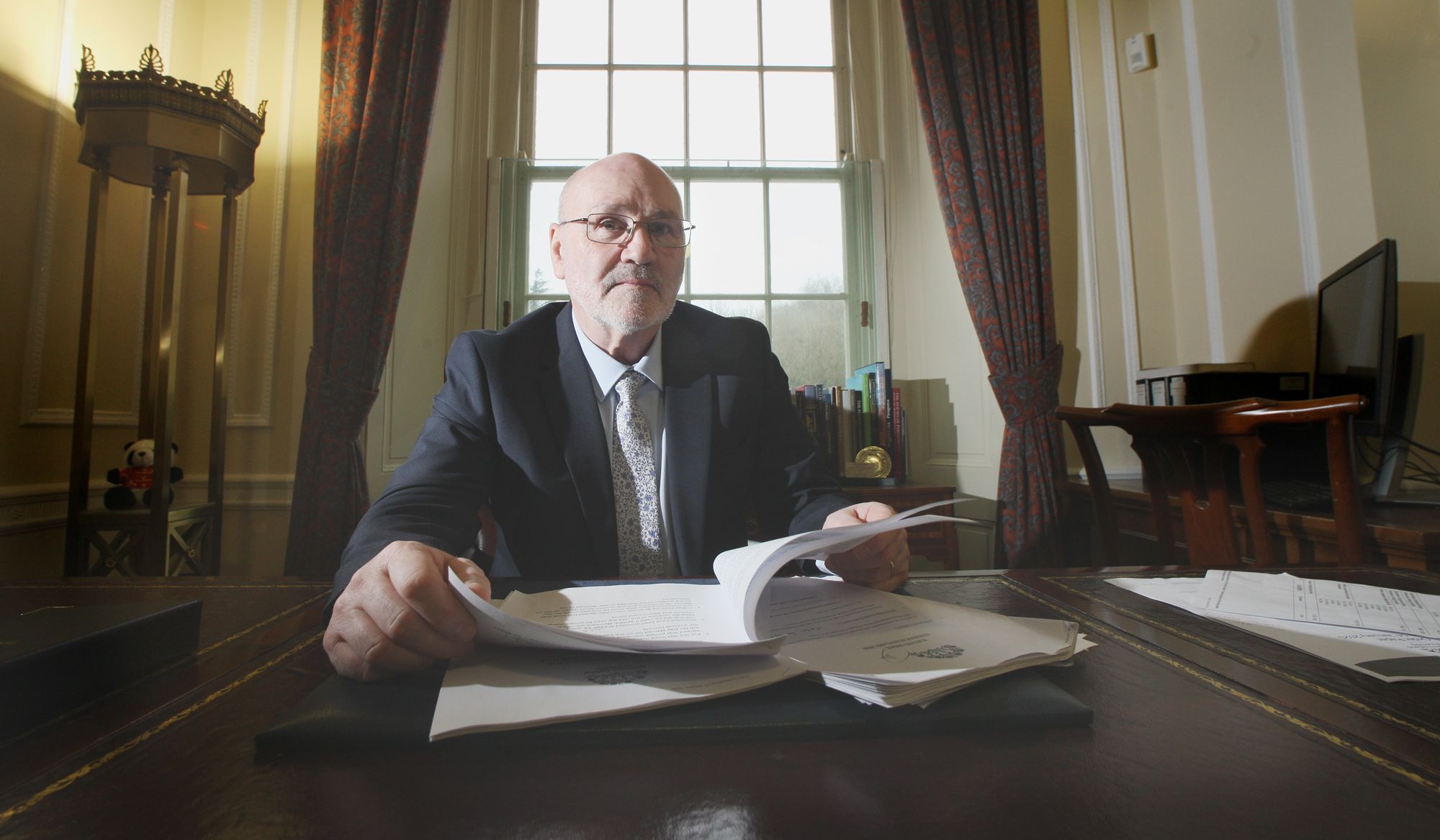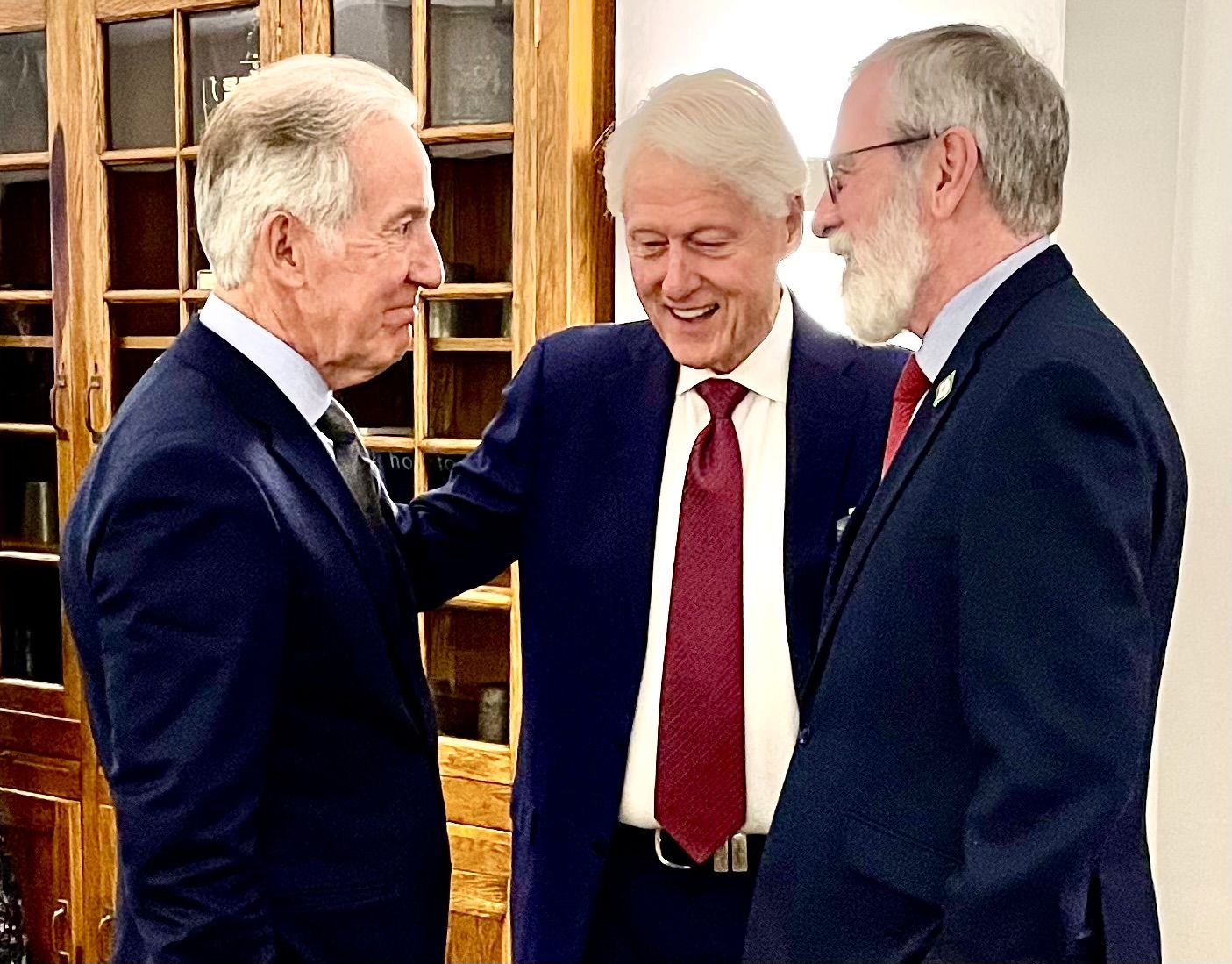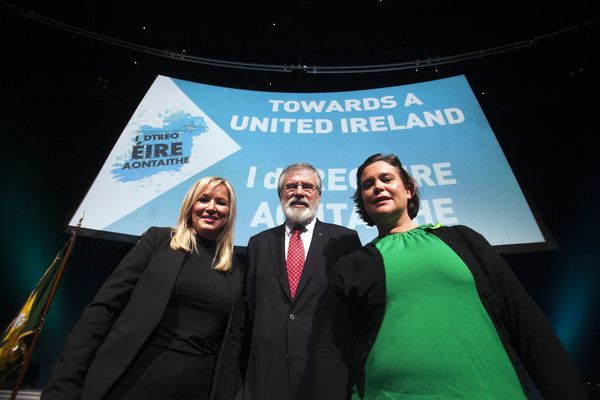THE 25th anniversary of the Good Friday Agreement has attracted considerable national and international interest in recent weeks. Part of this involved me travelling last week once again to the USA. It must be four years since I was last there. While a lot has changed politically in that time both here and in the US, some things never change – among them the multiple stamping in red capitals of SSSS (Secondary Security Screening Selection) on our boarding passes and suitcase labels. It is explained as a random process whereby travellers are selected for ‘enhanced’ searches. I have been getting the SSSS stamp on every visit to and from the USA for over 20 years. Randomly routine.
But apart from that the visit was an opportunity to catch up with many old friends and thank them for the crucial role they played in 1998 and continue to play today. If Irish America ever had any doubt about its political strength it was evident last week in President Clinton’s presence at a Cooper Union event in New York, the visit by President Joe Biden to Ireland – North and South – this week and the expected presence of President Clinton and former Secretary of State Hillary Clinton at events in Belfast this weekend.
The Cooper Union event was hosted by seven Irish American organisations: The Irish-American Unity Conference; Friends of Sinn Féin; The Ancient Order of Hibernians; The Friendly Sons of St Patrick; Brehon Law Society; James Connolly Irish American Labor Coalition; and Ladies' Ancient Order of Hibernians. President Clinton reminded the audience of the challenges he faced in engaging with the process, of the decisions he took, including giving me that first all-important 48-hour New York visa in January 1994 and his appointment of George Mitchell. He was forthright in his call for the Assembly and the Executive to be restored.
The following night I spoke at a dinner hosted by the Martin McGuinness Peace Foundation. Thanks to Marty Glennon and friends for their involvement in both events.
Congressman Richard Neal, Gerry Adams and President Clinton
The day after I returned from the USA I was in Parliament Buildings. Assembly Speaker Alex Maskey had organised a really good ceremony to mark the 25th anniversary of the Agreement. Entitled 'A New Beginning', the event brought together many of those who had taken part in the negotiations to reflect on the process and its outcome.
The choir of the Belfast School of Performing Arts were outstanding and the young people from the Youth Assembly who introduced each of the speakers were a reminder that the future we are building is an investment in them. Thanks also to Dana Masters for her songs.
I said that I believe Jeffrey Donaldson when he says that First Minister designate Michelle O’Neill taking up that office is not a problem for him. So when the DUP has concluded its internal processes all of us can look forward to a new phase of the northern Assembly. No other scenario is viable.
Of course that does not mean that everyone else should sit around twiddling their thumbs waiting for the DUP. The present English Government has no real investment in the Agreement. So there is a heavy onus on the Irish Government to use all the Good Friday Agreement mechanisms, including the British-Irish Intergovernmental Conference, to make progress. English direct rule is not an option.
Our responsibility is for the future. The past will take care of itself. Let’s plan for the day when we will all govern ourselves without the corrosive rule of London.
In the past 25 years we have fallen down many times. In fact we are very good at that. But we also are good at getting back up again. We are very successful at that. Let’s be successful once again.
Agreement talks very much a team effort
THIS week Alex Maskey shares his reflections on the negotiations for the Good Friday Agreement 25 years ago...
They say a week is a long time in politics. This month we mark the 25th anniversary of the Good Friday Agreement and we all should reflect on why it is that the Agreement is not yet fully implemented.
One thing is certain and that is that republicanism is stronger now across the island than it has been at any time in this past century, with the continuing growth of Sinn Féin and the emergence of civic United Irelanders while other progressives search for a political home, including within a new Ireland. I believe that the GFA itself remains a work in progress. However, I also believe passionately that it has successfully set the template for all of our politics since 1998.
Alex Maskey
I would say, however, with some frustration that many commentators often name-check a number of participants and leaders in the negotiations. I won’t take away from the contributions made by many in making the Agreement possible and effectively helping to end what had been the latest 30-year phase of conflict. But rarely do those same commentators get beyond citing Martin McGuinness or even Gerry Adams (on a good day) as architects of the GFA despite the critical role played by them both and many others. But that’s a discussion for another day.
Building the peace process through the mid-nineties was met with many challenges. However, progress was made, though perhaps with two steps forward and one step back until 1997 when all changed. In 1997 Sinn Féin was eventually formally admitted into the talks at Castle Buildings, Stormont.
As a member of our talks team I had the great pleasure to work closely on a day-to-day basis with our late and dear friend Siobhan O’Hanlon, who managed our administration with absolute professionalism and discipline. Part of my own work was to ensure that as many of our local party organisers and elected representatives could visit to either observe or participate in some element of the talks process in order to give as many as possible greater insight into the process of negotiations. For us, this was essential to underline to our members the premise that negotiations should always be much more than what goes on “in the room". In the room or outside the room, as activists we all had to complement each other by campaigning, fighting elections, engaging with our communities and winning the arguments we faced daily.
At times as we moved closer to an Agreement the pace was frantic, which only served to keep our team even more focused on the job in hand. But I must say it was also at times nerve-racking because we all understood how pivotal and important, even historic, that an actual peace agreement could be reached under our watch.
Once agreement was reached on Good Friday under the brilliant leadership of US Senator George Mitchell, we knew that our work was only just beginning as we set about establishing a new Assembly and so on, but that the experience we had gained would serve us very well.
Me and my music
I LOVE music. All kinds of music. I listen to the radio a lot. I still have cassette tapes and vinyl from the 1970s. I play them also. And CDs. And an iPod. I also have music on my phone.
Sharon Shannon
Every so often my devices organise my music into a Favourite Mix. For those of you who share my love for music here’s a sample of what my phone has selected for me. It includes Bruce Springsteen and James Taylor. The Byrds. Them. Sharon Shannon. John Spillane. Christy. Lisa O'Neill. The Bothy Band. Cormac Breathnach. The Animals. Mary Coughlan. Planxty. Liam O'Flynn. Frances and Mary Black. The Gloaming. Bob Dylan. John Prine. Pavoratti. Leonard Cohen. Cormac Begley. Ry Cooder. Altan. Willie Nelson. Paddy Glackin. John McCormack. Caitlín Maude. The Chieftains. Ray Charles. Pete Seeger. Sean O Sé. Clannad. The Saw Doctors. Luka Bloom. Muireann Nic Amhlaoibh. Joe Heaney. Simon and Garfunkel. The Rolling Stones. The Beatles. Skara Brae. Woody Guthrie. Van Morrison. Willie Nelson. Eileen Ivers.
Like books, dogs and children, it’s hard to pick a favourite song or musician. I love many, many more. Let the music keep your spirits high.








